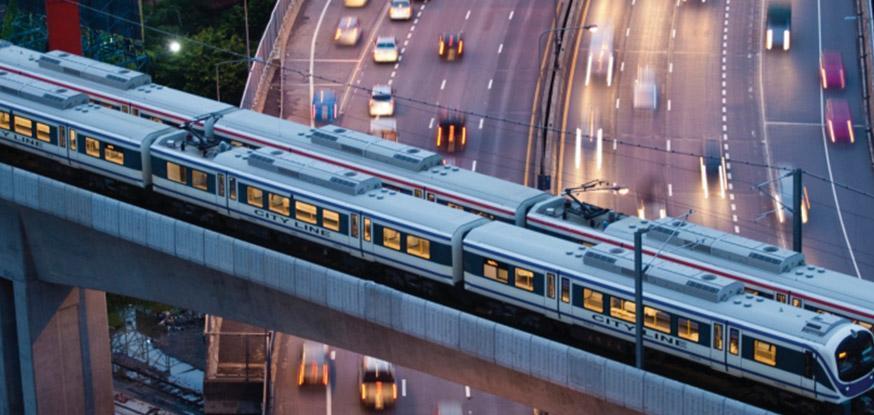A director tasked with the responsibility of overseeing the construction of America's first 'smart city' has said that improving mobility and transportation will ultimately 'save lives'. Jordan Davis, Director of Smart Cities, Columbus Partnership, made the remark as Columbus, Ohio embarks on a revolutionary transformation that will make it the first 'smart city' in the US.
Columbus, Ohio, is home to one of America's fastest growing STEM workforces and it beats off stiff competition in the form of Portland, Denver, Kansas City and Pittsburgh to win the 2016 'Smart City Challenge'. It has subsequently received $40m in funding from the US Department of Transportation - and an additional $10m from Vulcan Incorporated, which is an organization founded by Microsoft billionaire Paul Allen. The project which has been entitled 'The Crossroads of Ohio' - will become a blueprint and roadmap for other cities in the future of urban planning.
Davis, conceded that 'smart city' remains a buzzword, as in what defines a 'smart city' has not yet been established. However, she recognizes the importance of the project and firmly believes that the implementation of new 'smart city services' will reduce urban congestion and road traffic accidents, according to Davis it will basically 'save lives'. Davis said: "Mobility and transportation result in hundreds of deaths a year in our city. If we can improve how people get around, we'll save people's lives."
It aims to improve road safety by utilizing integrated data exchange (IED), which collects data from sensors that are installed on traffic lights. It will also accumulate data from other databases, which will then ultimately be used to determine which intersections are more prone to accidents, and which streets are frequently blocked off. The information gathered will then be distributed and relayed to drivers to let them know of the accident and traffic congestion hotspots.
In addition to this, it will also look for a solution to the incessant issue of parking. A report conducted by the 'Smart City Challenge' estimated that 30% of urban traffic was caused by drivers looking for vacant parking spaces in and around the city. One suggestion which has been proposed is to develop technology that will inform drivers of available parking locations in the area. However, it will also provide them with a route of how to find those spaces in the safest and most effective manner.
The plan also calls for introducing 780 electric vehicles into the city's public and private sectors by 2020, implementing automated shuttles and creating a system that adjusts speed limits in conditions like inclement weather. The public is encouraged to be part of the planning process by providing innovative ideas, but be forewarned: "Anyone that's bringing new technology to the Smart Columbus area will need to prove it out first in a safe and secure facility," Davis said.

